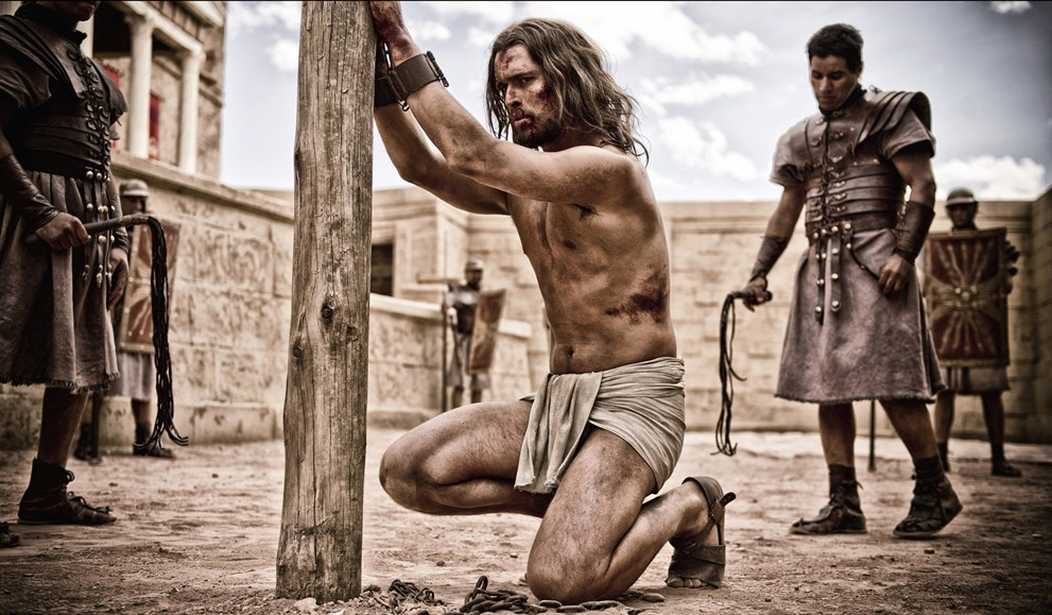Author's Note: All previous volumes of this series are here. The first 56 volumes are compiled into the book "Bible Study For Those Who Don't Read The Bible." "Part Two," featuring volumes 57-113, was published in December 2022.
Thanks for joining our study. Today, we discuss Jesus's quotes from the Hebrew Bible’s book of Isaiah. Since there are so many meaningful verses, we need a two-part series.
First, “Who was Isaiah?” He was the Hebrew Bible’s first major prophet, followed by Jeremiah, Ezekiel, and Daniel.
Second, “What is a major prophet?” Surprisingly, “major” points to the Bible book's length rather than the content's importance. The book of Jeremiah was the longest, and Isaiah won second place. But one could also surmise that length reflected the prophet’s relationship with the Lord to whom He “spoke,” inspiring them to write many chapters that recorded His Word. God’s “Word” often included warnings if His people disobeyed His commandments or dictates, followed by a judgment action or reminding the prophet of past judgments.
Turning to Isaiah, he was an evangelist who lived in Jerusalem during the 8th century BC and was influential among the leaders. The book of Isaiah claims to be written by him, or at least in part. However, the book’s 66-chapter length and the mention of historical events led scholars to believe other authors were involved.
Nonetheless, the book of Isaiah is significant and has profoundly impacted theology, culture, literature, and music. For example, Handel’s “Messiah” included numerous Isaiah verses such as “For unto us a child is born, unto us a son is given..” (Isaiah 9:6). (See “Vol. 194 Handel’s Messiah and the Bible.”)
Recommended
Our discussion of Isaiah's verses quoted by Jesus begins with my favorite topic, Messianic prophecies. Remember, at the time, Jesus’s disciples and Israelites were familiar with Isaiah’s verses. In the following passage, Isaiah records God’s gift to the Suffering Servant who poured out His life as a sacrifice for the sins of many:
“Therefore I will divide him a portion with the many, and he shall divide the spoil with the strong, because he poured out his soul to death and was numbered with the transgressors; yet he bore the sin of many, and makes intercession for the transgressors” (Isaiah 53:12). Correspondingly, Jesus prophesying His death said:
“‘It is written: ‘And he was numbered with the transgressors’; and I tell you that this must be fulfilled in me. Yes, what is written about me is reaching its fulfillment’” (Luke 22:37).
Since Jesus quoted from Isaiah 53, note that Isaiah Chapter 53 reads like a brief history of Jesus the Messiah. His mission was to be God’s “guilt offering” for our sins, and in His death, He was “led like a lamb to the slaughter.”
In February 2020, in Vol. 3 of this series, I wrote about Isaiah 53 (which, thanks to Townhall readers, today I write Vol. 222). In Vol. 3, I mentioned that Isaiah 53 is sometimes called “the forbidden chapter” since it is omitted from regular synagogue readings. Why forbidden? Read it and judge for yourself. Is it a prophecy about Jesus the Messiah written 700 years before His birth? Or does it describe the “state of Israel,” as most Jewish rabbis believe?
In the next set of Isaiah/Jesus quotes Jesus spoke about His teaching ministry in Divine terms. His followers would have understood that whenever Jesus began a lesson with “It is written,” he quoted Hebrew Scripture — the only Scripture during His time. First, the Isaiah quote:
“All your children shall be taught by the Lord, and great shall be the peace of your children” (Isaiah 54:13). Then, Jesus said:
“It is written in the Prophets, ‘And they will all be taught by God.’ Everyone who has heard and learned from the Father comes to me’” (John 6:45).
The following passages are about Jesus describing the purpose of His earthly reign. After Jesus quoted Isaiah, He added a famous declaration that so infuriated the temple worshippers they drove him out of his hometown of Nazareth. Isaiah records:
“The Spirit of the Sovereign Lord is on me, because the Lord has anointed me to proclaim good news to the poor. He has sent me to bind up the brokenhearted, to proclaim freedom for the captives and release from darkness for the prisoners, to proclaim the year of the Lord’s favor and the day of vengeance of our God, to comfort all who mourn..” (Isaiah 61:1-2). Seven centuries later, Jesus said:
“‘The Spirit of the Lord is on me, because he has anointed me to proclaim good news to the poor. He has sent me to proclaim freedom for the prisoners and recovery of sight for the blind, to set the oppressed free, to proclaim the year of the Lord’s favor’” (Luke 4:18-19). Cue the fireworks, since after reading that passage, Jesus said:
“‘Today this scripture is fulfilled in your hearing’” (Luke 4:21). Yikes! The statement was analogous to His robe imprinted with “I am the Messiah” and a target on His back. But because He was (and is) the Messiah, Jesus slipped through the angry crowd who wanted to “throw Him down the cliff.”
There are two more gospel passages where Jesus partially quoted from Isaiah 61:1-2 when explaining His ministry to messengers sent by the imprisoned John the Baptist. The first passage was from Matthew, and the second appears in Luke 7:18-23 with near exact wording. Here is Matthew’s version:
“When John, who was in prison, heard about the deeds of the Messiah, he sent his disciples to ask him, ‘Are you the one who is to come, or should we expect someone else?’ Jesus replied, ‘Go back and report to John what you hear and see: “The blind receive sight, the lame walk, those who have leprosy are cleansed, the deaf hear, the dead are raised, and the good news is proclaimed to the poor. Blessed is anyone who does not stumble on account of me’” (Matthew 11:2-6).
That’s it for today, and we will continue next week with Part 2. Here is my final thought: As a Messianic Jew, I am always baffled by Jewish rabbis who know the book of Isaiah but ardently dismiss the Messianic prophecies and Jesus’s quotes as more evidence that He was the Messiah. Then, there is Isaiah 53, which, as previously mentioned, rabbis say is about Israel. Nonetheless, verse 53:11 effectively neuters that argument and is especially poignant:
“After he has suffered, he will see the light of life and be satisfied; by his knowledge, my righteous servant will justify many, and he will bear their iniquities.” Amen to that!
Myra Kahn Adams is a conservative political and religious writer with numerous national credits. Her book, "Bible Study For Those Who Don't Read The Bible," reprints the first 56 volumes of this popular study. "Part 2,” with the same title, reprints Vols. 57-113. Order it here.
Myra is also the Executive Director of SignFromGod.org and the National Shroud of Turin Exhibit. Both are educational donor-supported ministries dedicated to building a permanent Shroud of Turin exhibit in Washington, D.C. The National Shroud of Turin Exhibit will host a four-day exhibit at the National Eucharistic Congress in Indianapolis, Indiana, July 17-21. Contact: <MyraAdams01@gmail.com>

























Join the conversation as a VIP Member